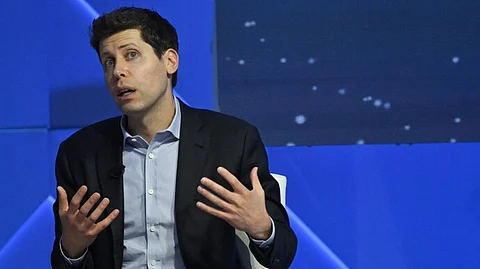

Artificial intelligence isn’t just changing the jobs we have; it may soon create ones we can barely imagine. And according to OpenAI CEO Sam Altman, one of those future dream careers could be in space, as reported by The Times of India.
In a recent conversation with video journalist Cleo Abram, Altman painted a picture of a future where graduates leave college not for corporate offices.
“In 2035, that graduating college student, if they still go to college at all, could very well be leaving on a mission to explore the solar system on a spaceship in some completely new, exciting, super well-paid, super interesting job,” Altman said.
Altman envisions a future where space exploration is no longer the exclusive domain of highly trained astronauts in government programs.
Private companies, international collaborations, and AI-powered automation could make space roles accessible to people from a variety of professional backgrounds, from robotics and engineering, to planetary science and logistics.
He believes AI will take over certain repetitive or highly specialised tasks, but in doing so, it will create entirely new industries.
GPT-5, for example, has already given people instant access to PhD-level expertise in their pocket.
This, Altman argues, could empower individuals to launch billion-dollar ventures on their own, lowering barriers and democratising access to innovation and entrepreneurship, added TOI.
Data from the US Bureau of Labor Statistics shows, aerospace engineering jobs are growing faster than average, with salaries surpassing $130,000 a year.
Demand is expected to rise further as private companies push ahead with spacecraft manufacturing, lunar bases, and Mars missions.
Future space work could include designing spacecraft, running AI-assisted mission control, managing in-space manufacturing, or even planning interplanetary cargo routes.
AI-powered tools are already used in space research for autonomous navigation, predictive maintenance, and data analysis. Altman’s timeline aligns with NASA’s vision, which includes human missions to Mars in the 2030s.
If these plans stay on track, the graduating class of 2035 might be stepping directly into a workforce where Moon and Mars operations are routine.
Altman predicts that future generations will look back on today’s desk jobs as “boring, old work” compared to the possibilities ahead.
